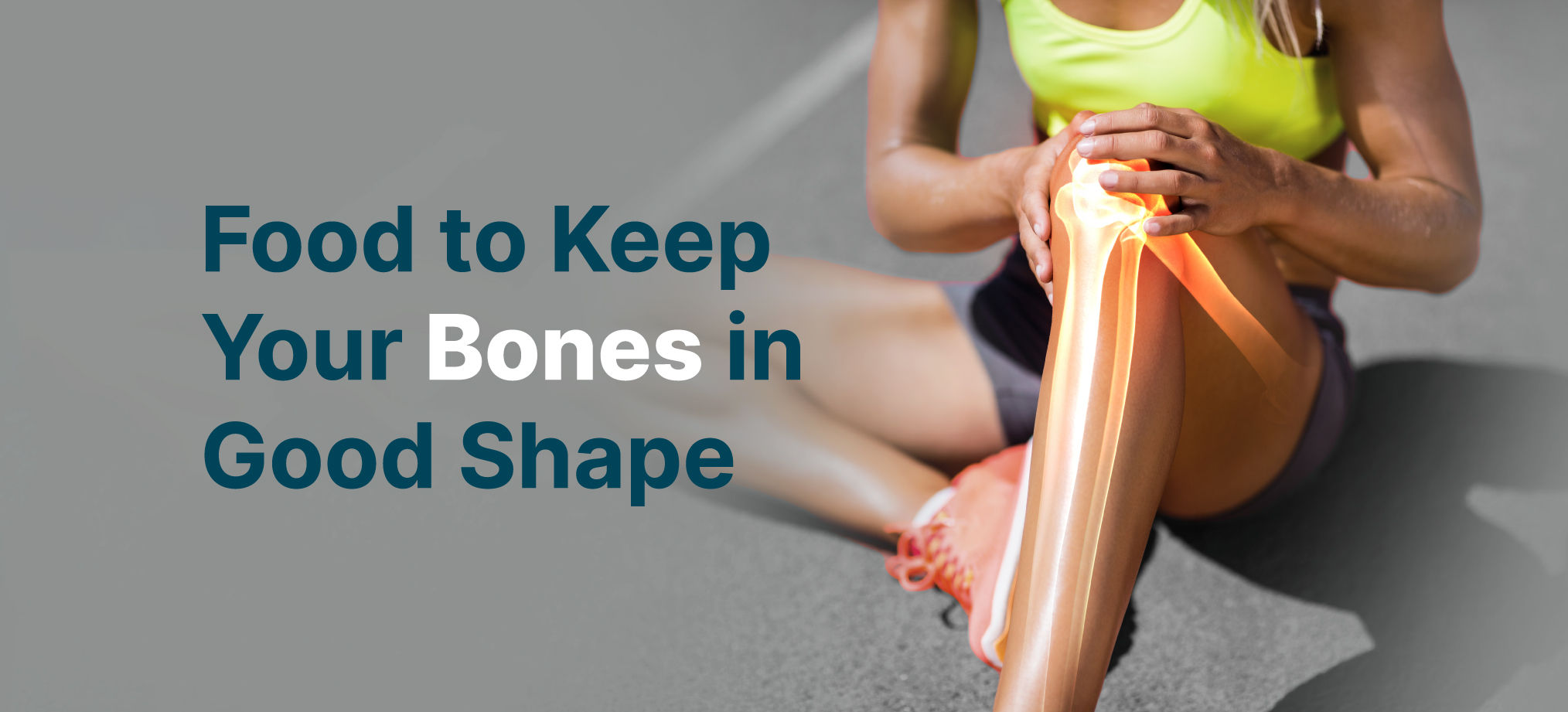Orthopedic Conditions
Here’s What You Need To Eat To Maintain Your Bone Health
3 min read
By Apollo 24|7, Published on - 14 July 2022, Updated on - 18 October 2022
Share this article
0
0 like

Healthy bones are extremely important at every stage of life. Bones protect the internal organs such as the brain and heart from injury, provide support to the muscles, store minerals like calcium and phosphorous and help maintain the balance and posture of the body. Let us understand more about bones and the ways to keep them healthy.
Understanding the bone cycle
Our bodies continuously replace old bone tissue with new bone tissue. Bone formation dominates bone loss for the first three decades of life until it reaches the peak bone mass. This peak bone mass is maintained for about 20 years with an equal amount of bone loss and formation, after which bone loss dominates bone formation, resulting in severe loss of mineral content. These factors along with a sedentary lifestyle and hormonal fluctuations can make the bones weak, brittle, and susceptible to fractures, resulting in bone disorders such as osteoporosis.
The development of osteoporosis depends on the amount of peak bone mass achieved. It has been reported that those who achieve higher peak bone mass at a young age are less likely to develop osteoporosis later in life.
Recommended reading: Osteoporosis: How to Maintain Healthy Bones
How to maintain bone health?
It is a well-known fact that calcium and vitamin D are the key nutrients required for healthy bones.
- Calcium: Calcium is the building block for bones and is vital to maintaining strong and healthy bones. The bones store nearly 99% of the calcium in the body. Calcium-rich foods include dairy products (milk, yoghurt, and cheese), green leafy vegetables, fish like sardines, salmon and calcium-fortified cereals, and fruit juice.
- Vitamin D: Vitamin D is required for the absorption of calcium in the body. Vitamin D sources include sunlight and foods such as egg yolks and oily fish like sardines, salmon, and mackerel.

Calcium and vitamin D supplements can also be taken to meet the daily requirements. However, one should consult the doctor before starting any health supplements.
Many other nutrients that are naturally found in a typical diet and contribute to bone health include:
- Phosphorus: It is a major mineral that forms an integral component of the bone. Sources of phosphorus include dairy products, meat, fish, eggs, beans, lentils, nuts, sunflower seeds, and cheese.
- Magnesium: Magnesium helps improve bone strength and is known to increase bone density, thereby preventing the onset of osteoporosis. Foods containing magnesium include spinach, chickpeas, bananas, avocados, nuts, and seeds.
- Vitamin K: It is required for bone formation, mineralization, and calcium metabolism. Vitamin K is also known to enhance bone mineral density and reduce fracture rates in people with osteoporosis. Leafy greens, asparagus, avocado, pumpkin, and kiwifruit are good sources of vitamin K.
- Vitamin C: Vitamin C is required for the development of collagen, which is the main protein in bone synthesis. Vitamin C is present in citrus fruits, kiwifruit, guava, tomatoes, red bell pepper, broccoli, and kale.

Proper nutrition is required to build and maintain healthy bones. Furthermore, in addition to sufficient amounts of vitamins and minerals, performing weight-bearing exercises, quitting smoking, limiting alcohol intake, and reducing caffeine consumption can help maintain good bone health.
For more information,
Consult an Apollo Orthopedician
Medically reviewed by Dr Sonia Bhatt.
Orthopedic Conditions
Leave Comment
Recommended for you

Orthopedic Conditions
Try These Yoga Asanas To Strengthen Your Back
For people of all ages, yoga has positive effects on both physical and mental health. Yoga can also become a crucial component of your treatment and possibly speed up recovery if you're battling an illness, recuperating from surgery, or dealing with a chronic disease.

Orthopedic Conditions
What Is Osteopenia How Can It Be Prevented?
Osteopenia is a medical condition where a person loses bone mineral mass, but the loss is not as low to be classified as osteoporosis.

Orthopedic Conditions
Could a Slipped Disc Be Causing That Sudden Back Pain?
A slipped disc occurs when a soft cushion of tissue between the bones in the spine pushes out, causing discomfort and pain.
Subscribe
Sign up for our free Health Library Daily Newsletter
Get doctor-approved health tips, news, and more.
Visual Stories

Natural Ways to Get Relief from Arthritis
Tap to continue exploring
Recommended for you

Orthopedic Conditions
Try These Yoga Asanas To Strengthen Your Back
For people of all ages, yoga has positive effects on both physical and mental health. Yoga can also become a crucial component of your treatment and possibly speed up recovery if you're battling an illness, recuperating from surgery, or dealing with a chronic disease.

Orthopedic Conditions
What Is Osteopenia How Can It Be Prevented?
Osteopenia is a medical condition where a person loses bone mineral mass, but the loss is not as low to be classified as osteoporosis.

Orthopedic Conditions
Could a Slipped Disc Be Causing That Sudden Back Pain?
A slipped disc occurs when a soft cushion of tissue between the bones in the spine pushes out, causing discomfort and pain.